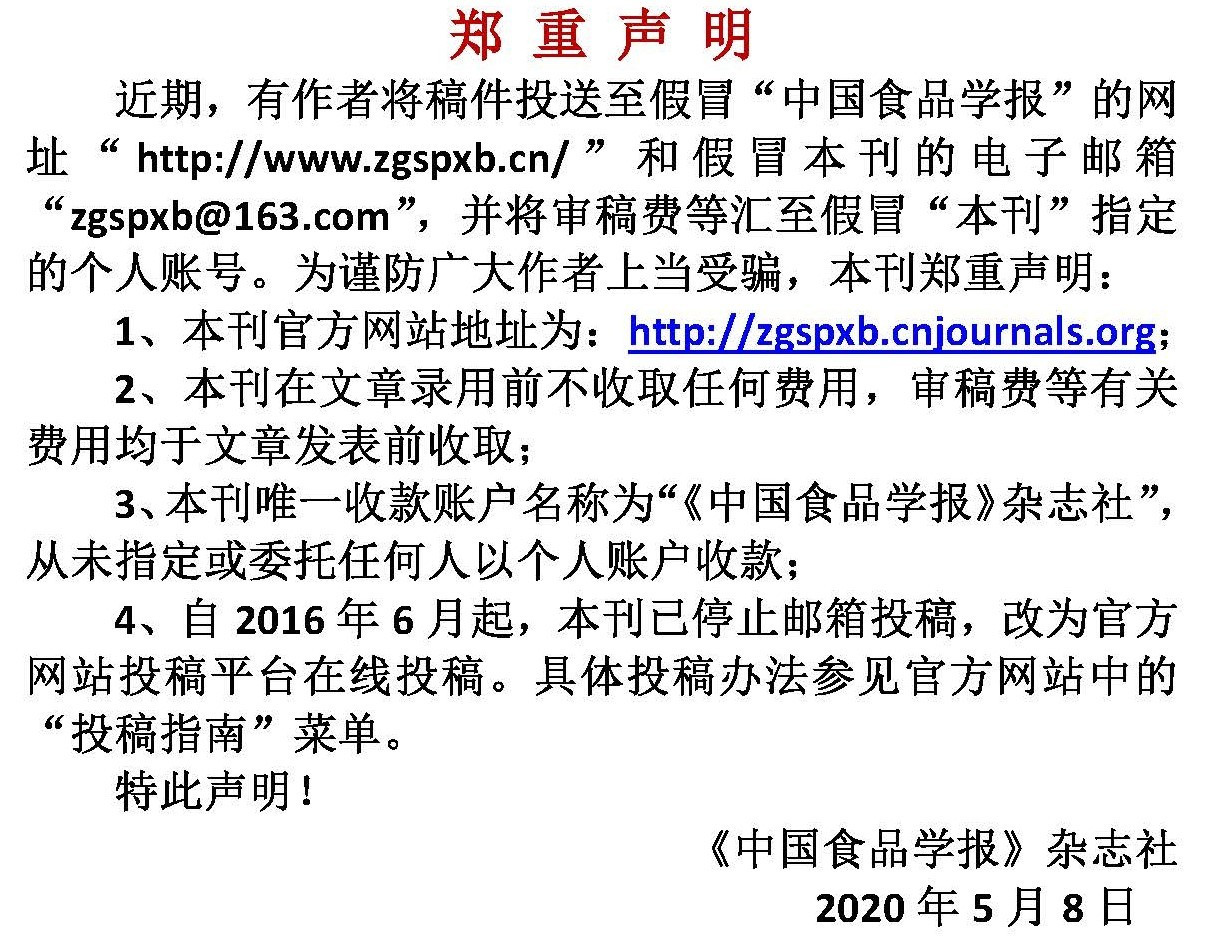Characterization and Mechanism of Softening of High Pressure Processed Carrot during Pressure Come-up Time and Storage
Author:
Affiliation:
Fund Project:
引用本文
孙雅馨;康旭蕾;唐筝;陈芳;胡小松;.超高压升压和贮藏期胡萝卜软化特征及其机制[J].中国食品学报,2019,19(10):179-189
复制分享
文章指标
- 点击次数:
- 下载次数:
- HTML阅读次数:
历史
- 收稿日期:
- 最后修改日期:
- 录用日期:
- 在线发布日期: 2019-11-21
- 出版日期:
文章二维码

版权所有 :《中国食品学报》杂志社 京ICP备09084417号-4
地址 :北京市海淀区阜成路北三街8号9层 邮政编码 :100048
电话 :010-65223596 65265375 电子邮箱 :chinaspxb@vip.163.com
技术支持:北京勤云科技发展有限公司
地址 :北京市海淀区阜成路北三街8号9层 邮政编码 :100048
电话 :010-65223596 65265375 电子邮箱 :chinaspxb@vip.163.com
技术支持:北京勤云科技发展有限公司
